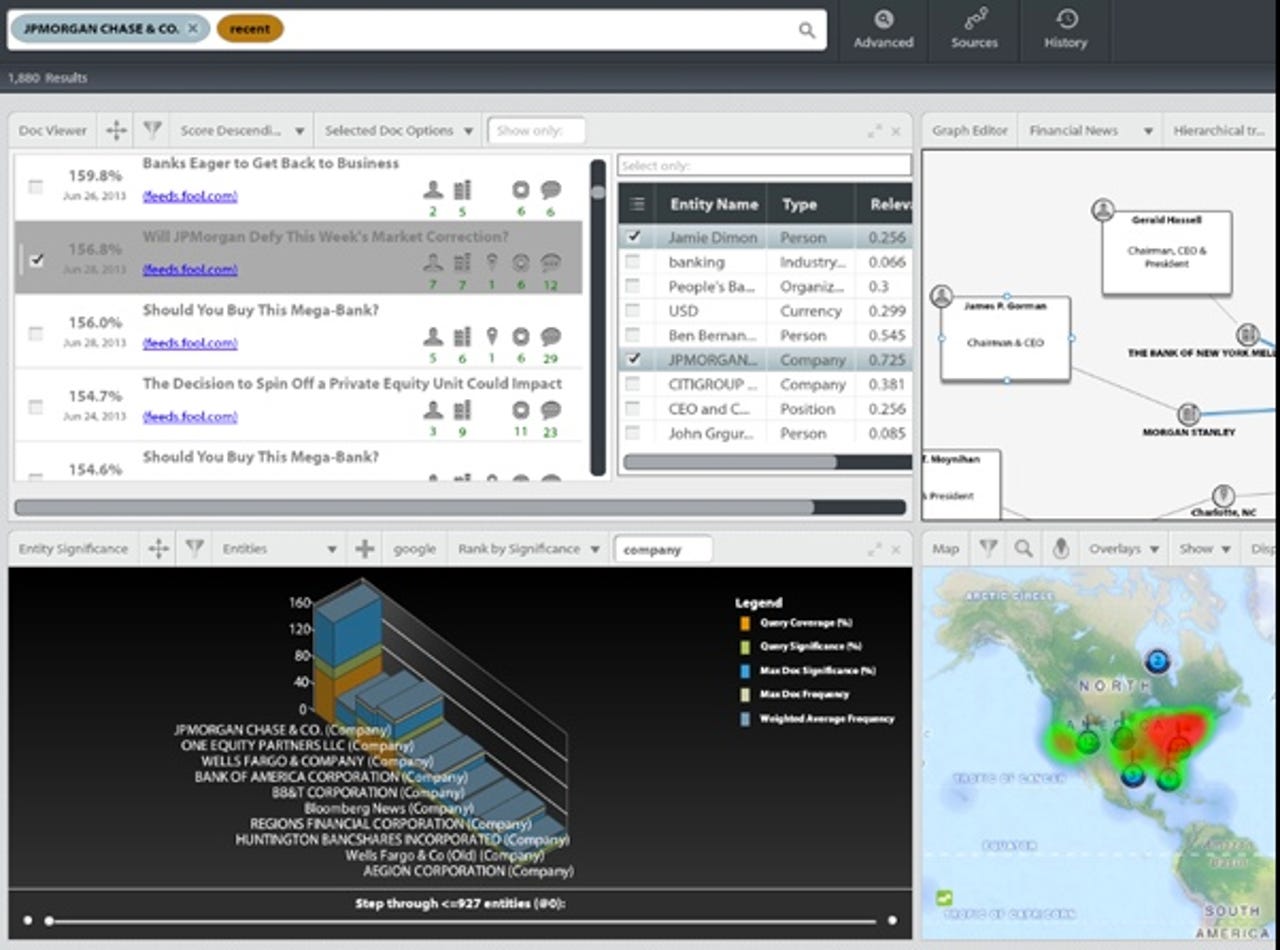Case study: Impetus Research taps IKANOW solution to solve humanitarian logistics problem

A small consortium of NGOs asked Impetus Research to help identify the logistics 'ecosystem' in Senegal, West Africa. Impetus provides multi-mode data collection (both quantitative and qualitative techniques), survey programming and hosting, data processing and analytics, plus translation and transcription.
The consortium wanted to compete with established players in winning humanitarian contracts offered by the United Nations and the U.S. Agency for International Development. These larger competitors had their own logistics infrastructures already in place, and the consortium believed they wouldn't share those with a 'competitor', or would charge uncompetitive prices if they did. To uncover credible and trustworthy logistics service providers for the NGOs, Impetus Research had to rely extensively on social networks both within and outside Senegal.
Challenges of the Sahel Crisis
The UN and USAID have been actively assisting Senegal for many years in economic and agricultural development. Senegal is also one of nine African countries being affected by the Sahel Crisis, an ongoing situation causing 11.3 million people to be food-insecure because of drought, poor harvests, rising food prices and conflict, according to the United Nations, Office for the Coordination of Humanitarian Affairs. Severe acute malnutrition is affecting 1.5 million children younger than five years old, Senegal's share of that number being 63,000.
To uncover credible and trustworthy logistics service providers for the NGOs, Impetus Research had to rely extensively on social networks both within and outside Senegal.
The funding required to address the crisis through the end of 2013 is $1.72 billion, and as of the middle of September funding was about $1 billion short. But even if all required money is available for any given location, there are multiple challenges that face organizations wanting to provide humanitarian assistance. Chief among those is that there is often a lack of flexible and sustainable supply chains.
For Impetus Research, the immediately pressing issue was the uncertainty inherent in entering an unfamiliar territory.
"We had no direct, personal knowledge of Senegal, and the logistics services offered there," explained Cameron Hunt, director at Impetus Research. "Also, none of our team spoke French, the official language, let alone Wolof, the major tribal language. We needed to be able to rapidly reduce our uncertainty and we knew that this would involve both pulling in existing information currently available on the web, as well as establishing and validating social and business relationships within the country."
Satisfying multiple business goals
Impetus faced a key challenge in implementing a solution besides achieving its project goals, which by themselves were challenged by time constraints of a short deadline, and even further hampered by reduced resources and the need to balance between breadth and depth. The company also wanted a test case that would prove the viability of future commercial opportunities. In this case, Impetus was self-funding a broader demonstration of its capabilities with its eye toward winning follow-on work with the consortium, as well as with other potential clients. The company ultimately chose IKANOW, a data analytics solution for harvesting and analyzing both structured and unstructured data, as its solution provider. Hunt said one of IKANOW's most important functions was to help Impetus achieve its analytical objectives. Impetus was also evaluating the attractiveness of recommending IKANOW to other clients requiring internal analytical capability.
The commercial value of Impetus' approach had to be one of balance where the company illustrated its innovative capacity in general through a specific, applied demonstration. In doing so the company wanted to reach clients who needed its innovation services but that weren't necessarily a good fit for the specific technical implementations. It was also interested in clients that simply wanted to accept the technology as is, and transition it into their internal production processes. The company's experience had taught it that executing small-scale pilots helped it reach and win over both types of customers.
Exploring the options
Impetus has a history of regularly testing solutions as part of its constant improvement efforts so it can take advantage of new technologies as they become available. For this project the company also looked at one other specific platform before choosing IKANOW. Hunt said he looked at LucidWorks and recognized it as an excellent platform but it was biased toward performing SEO analysis. He was also familiar with Palantir, but didn't want to have to write Java for creating or adjusting data importers. He also thought the platform was expensive, considering it required a Java client to run.
IKANOW met Impetus' core needs while having a relatively low technical barrier of entry to configure. Hunt said the concept of satisficing, or selecting the option that meets most needs, was instrumental in helping his company make its selection. Because it was integrating several technologies in a relatively new way, with new business processes, the organization behind any given technology was as important as the technology itself.

Taking stock of un-technical aspects
But there was something very un-technical about IKANOW's solution that was a major factor in it being chosen — its culture.
"Organizationally, the company was very willing to engage in discussions about possibilities, and to dedicate an appropriate level of internal integration development," said Hunt. "At a technical level, the combination of existing and near-term roadmap development aligned very closely to our needs. Our discussions positively influenced their technical architecture and development. I can't emphasize enough how valuable that dynamic has been in supporting our objectives."
Although adoptions of these kinds can be fraught with complications, Hunt said the biggest surprise was the amount of architectural decisions needed to manage information at scale. But that too reaffirmed the choice was right, because it was how IKANOW managed the connections between extracted entities and the source material from which they arose that showed it to be the only rational choice to handle the flood of unstructured data. However, Hunt admitted that the process can be frustrating.
"The biggest problem was really one of patience on our part," he remembered. "IKANOW was furiously working on advanced capabilities and we wanted them yesterday. Of course there are endless bug fixes and re-factoring that takes place in such a development environment, but the reward is to collaboratively identify more optimal solutions, or test use cases, that really ground concepts in practical reality."
Unlocking social media data
In the end, IKANOW's traditional big data harvesting and analytical capabilities, and its ability to integrate with Impetus' CRM and social media accounts, enabled Impetus to meet the challenges. This was particularly evident in dealing with the social media connections. Social events such as 'friending' for FB and 'following' for Twitter, were integrated with and contextualized by other public data streams, as well as by Impetus' own internal data activity. In one particular instance, Impetus was able to identify common 'friends' among its primary 'fixers' and friends. Being able to do that dramatically reduced the discovery process, and also helped in identifying when its Senegalese contacts might have conflicting interests.
For its part, Impetus has already received follow-on business stemming from this project and is waiting to hear about additional business from the NGOs as they are successful in their bids. Overall, the results were that Impetus incorporated IKANOW into its standard research framework and process.
"Not only did IKANOW show vision and willingness to collaborate with customers," said Hunt, "but their technical approach has created a platform that's immediately useful, while also being flexible and extensible in important ways that are necessary to support broader business operations. This is a case where the true challenge of big data came into focus. We had to make sense of multiple streams having different data models while originating from multiple sources and contexts. Big data is about much more than quantity: IKANOW not only supported that, but also provided downstream workflow tools and the ability to interoperate with Impetus' other systems."